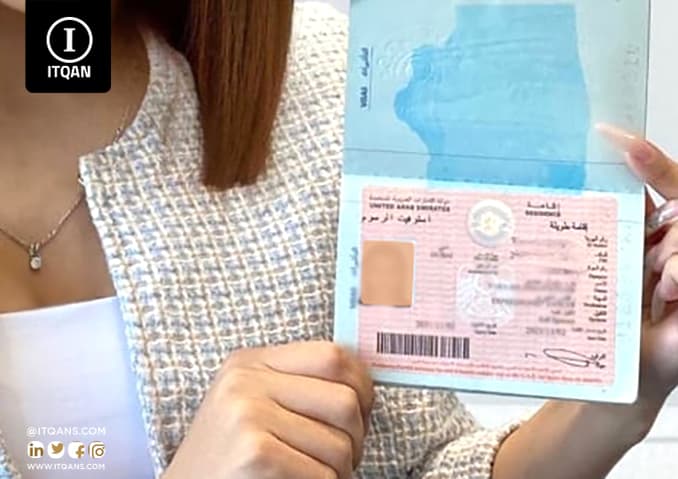Establishing a company in Dubai represents an essential step towards entering the dynamic business world of the United Arab Emirates. Thanks to its advanced infrastructure and encouraging economic policies, Dubai provides an ideal environment for investment and economic growth. In this article, we will go over the steps to register a company in Dubai, from the legal options available to businesses to obtaining the necessary licenses and starting the business. We will also highlight the financial and administrative requirements to consider, as well as the tax benefits and perks that businesses can take advantage of in this dynamic market.

Steps to register a company in Dubai
جدول المحتوى
ToggleRegister a company in Dubai
Registering a company in Dubai represents an important strategic step for investors seeking to benefit from the dynamic business environment and favorable economic climate in the UAE. Dubai enjoys a distinguished strategic location and advanced infrastructure, making it a major attraction for business worldwide. To register a company in Dubai, several basic steps are required, including choosing the appropriate company type and applying for the necessary licenses in one of the available freedom zones, such as Jebel Ali or Dubai Investments Zone. After that, the required documents are submitted and specific contracts are signed, with establishment procedures completed in cooperation with the relevant authorities. Once all conditions are met and government approvals are obtained, the company can begin conducting commercial activities with all legal conditions and applicable local legislation. Investors should also be aware of the expected financial costs, tax liabilities, and administrative procedures necessary to keep the company running successfully in Dubai.
Steps to register a company in Dubai
Registering a company in Dubai requires following several basic steps. Here are the steps to register a company in Dubai in general:
- Choose the type of company: Decide what type of company you want to establish, such as a limited liability company, a sole proprietorship, a subsidiary, etc.
- Choosing a free zone: Select the free zone you wish to register in, considering its requirements and available benefits such as tax and customs concessions.
- Submit a registration application: Submit a registration application for the company in the chosen free zone, and submit the necessary documents such as passports for shareholders and directors, company contracts, and financial plans.
- Obtaining government approvals: Wait for the necessary government approvals, such as business licenses and business licenses, and ensure that all legal requirements are met.
- Signing contracts and final establishment: Sign the necessary contracts with partners and managers, and complete the final establishment procedures in cooperation with the relevant authorities in the free zone.
- Obtaining licenses and licences: Once the procedures are completed, request the issuance of commercial licenses and licenses necessary to start commercial activities in Dubai.
- Open a bank account: Open a bank account for the company in one of the local banks, in order to manage the financial flows and daily financial transactions of the company.
- Legal and Tax Compliance: Ensure compliance with all tax and legal laws and legislation in Dubai and the UAE, including regularly submitting the necessary financial and administrative reports.
The cost of establishing a company in Dubai
The costs of establishing a company in Dubai vary based on several factors, including the type of company, the free zone chosen, and the services required. Here’s an overview of the approximate costs:
- Registration and license fees: These fees include the costs of issuing licenses and business licenses necessary to start commercial activities. These fees may range from around AED 10,000 and above, depending on the type of company and free zone.
- Legal and accounting consulting fees: You may need legal and accounting consulting to guide you through the incorporation process and ensure compliance with local laws, and these fees depend on the size of the company and the services required.
- Rent and infrastructure costs: If an office or work space is needed, monthly or annual rental costs are included, as well as infrastructure costs such as telecommunications and internet.
- Necessary capital: The necessary capital depends on the type of company, and some company types may require specific amounts as initial capital to start business operations.
- Other government fees: These may include administrative fees and other government services that you must pay during the incorporation process and during the period of operation of the company.
- Other administrative costs: These costs include daily management costs such as salaries, social insurance, and other general expenses that must be covered to ensure the continuity of the company’s work.
Types of companies that can be established in Dubai
In Dubai, several types of companies can be established according to local laws regulating these operations. Here are some of the main types of companies that can be established:
- Limited Liability Company – LLC: An LLC is a popular company form that provides limited financial protection to shareholders. Shareholders in this type of company can benefit from management that is flexible and consistent with their needs.
- Sole Proprietorship: It is managed by one person and is considered a simple form of business. The owner bears full responsibility for the debts and obligations of the company.
- Public Joint Stock Company (PJSC): It allows the company to raise capital from the public by selling shares on the public financial market.
- Private Joint Stock Company (PrJSC): Similar to a public joint stock company but limited to a limited number of shareholders, and often has less stringent regulatory rules.
- Partnership: Managed by a group of partners who share risks and profits under a written partnership agreement.
- Branch of a Foreign Company: Foreign companies are allowed to open branches in Dubai to practice their activities under certain licenses and controls.
- Free Zone Company: Free zones in Dubai (such as Jebel Ali, Jebel Ali Free Trade, Dubai Investments, and others) are an ideal environment for establishing companies, as they provide tax exemptions, customs facilities, and easy establishment procedures.
Documents required to establish a company in Dubai
To establish a company in Dubai , the required documents usually vary slightly depending on the type of company and the region you choose to establish the company, whether it is in the free zones or outside it. However, here is a general list of basic documents that may be required to establish a company in Dubai:
- Registration application form: includes basic information about the company, such as its name, type, address, and proposed activities.
- Copy of passport: for shareholders, directors and partners representing the company.
- Certificate of experience and qualifications: for managers and key partners if required by the type of company.
- Incorporation document (Memorandum of Association): describes the company’s structure, objectives, and shareholders’ rights and obligations.
- Partnership Agreement: If the company is a partnership.
- No Objection Certificate: from the relevant authorities if required.
- Projected financial report: includes the business plan and financial projections for the company.
- Lease contract or title deed: for the company’s head office address.
- Tax registration certificate: from the Dubai Tax Department.
- Commercial activity license: which specifies the company’s activity and its authorization to carry out its commercial activities.
To conclude this article, registering a company in Dubai shows that it is an exciting and important process for investors seeking to benefit from the dynamic business environment in the region. From determining the right type of company and identifying the appropriate free zone, to submitting the necessary applications and completing the legal procedures, company incorporation steps are crucial to ensuring financing and legal compliance. Investors should also be aware of expected financial and administrative costs, including government fees and legal and accounting consulting costs. After establishment, Dubai’s Freedom Zones provide a stimulating environment characterized by tax and customs privileges, attracting investors from various sectors. Effective company management and compliance with local legislation are the foundation of business success in the UAE, making company registration in Dubai a crucial strategic step to grow and prosper in a competitive global market.
The most important frequently asked questions about registering a company in Dubai
What activities are prohibited or restricted in Dubai?
Prohibited or restricted activities vary depending on the economic sector and local legislation, and the list of permitted activities must be reviewed before starting the incorporation process.
Are there special requirements for women in establishing companies in Dubai?
No, women have the same opportunities and rights to establish businesses as men under local laws.
What are the tax obligations of companies in Dubai?
Tax obligations include paying taxes on income, value added and other local and international taxes in accordance with applicable tax laws.
Can public joint stock companies trade in the financial market?
Yes, publicly traded companies can trade on the financial market provided they comply with local and regulatory requirements.
Can foreigners establish a company in Dubai with 100% ownership?
Yes, in free zones foreigners can obtain 100% ownership without the need for a local partner, but in places outside free zones there may be some restrictions on ownership.

















